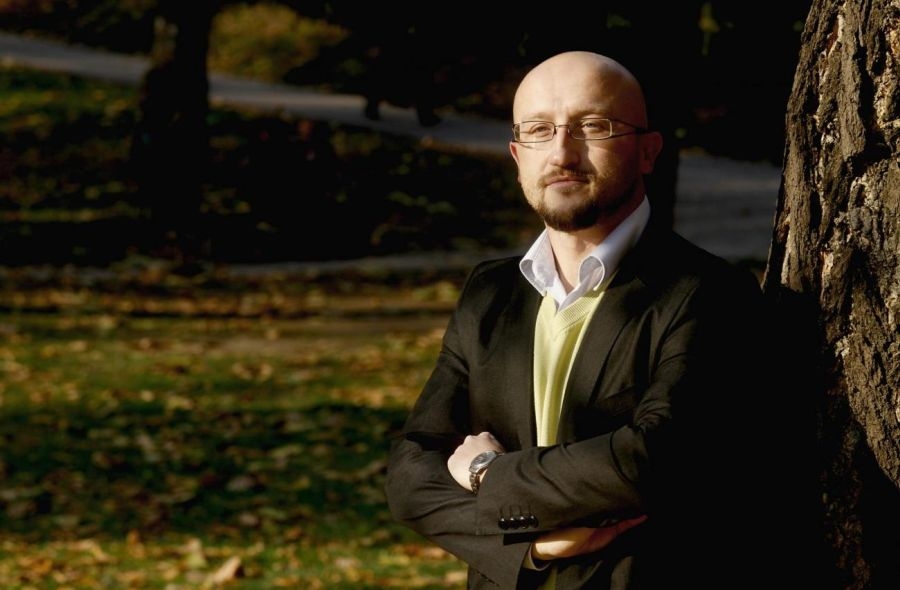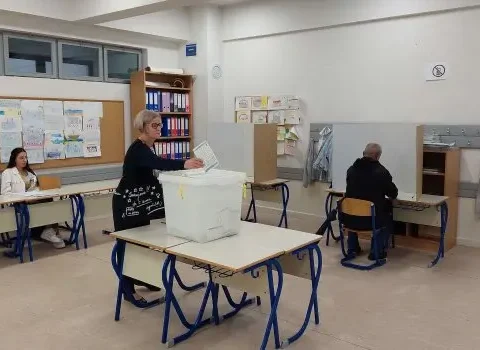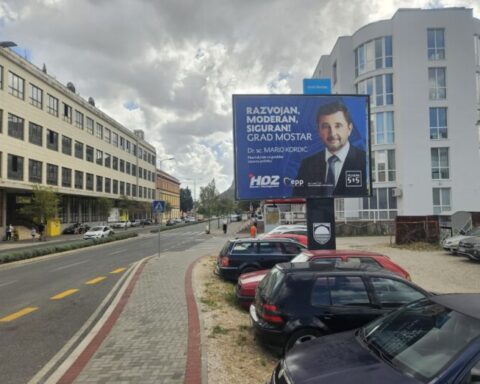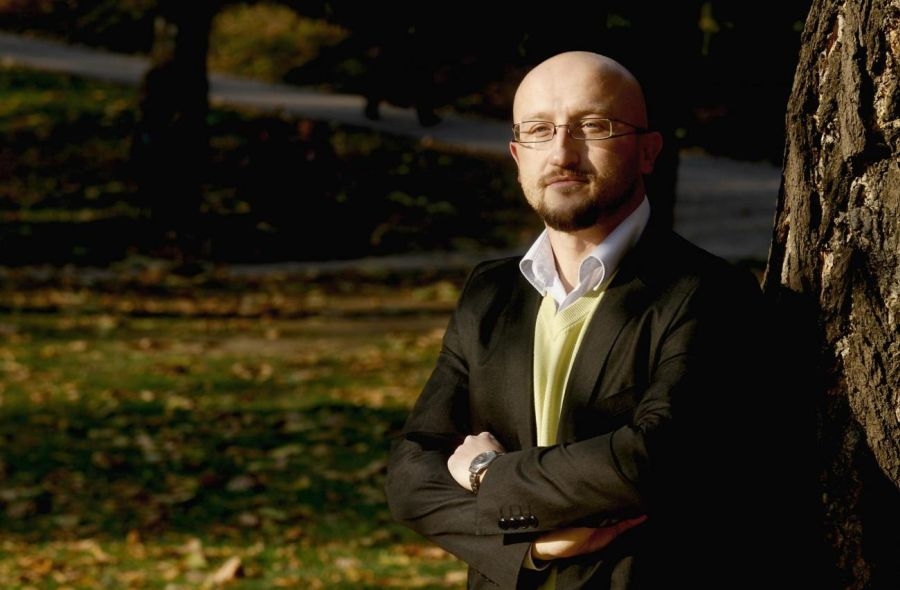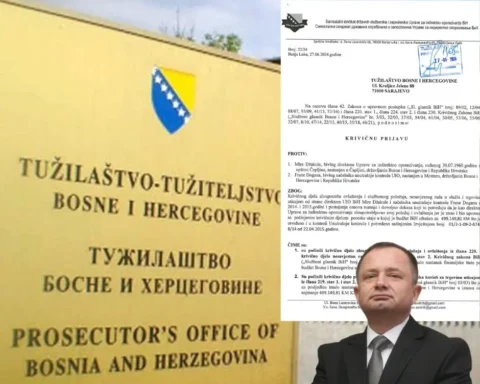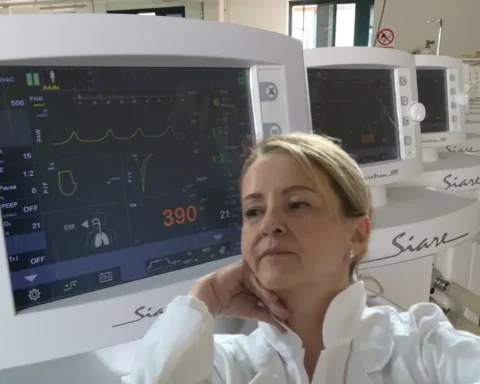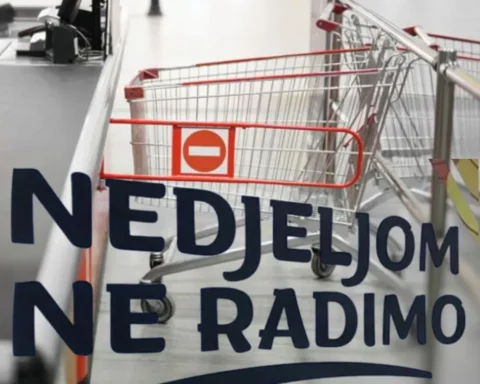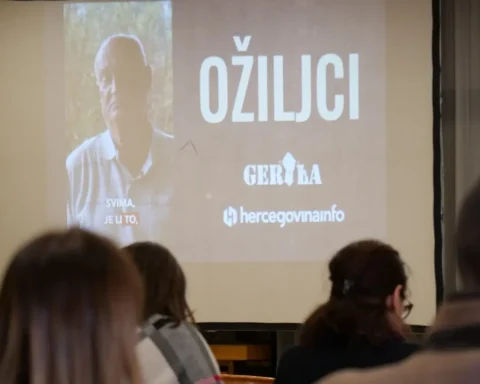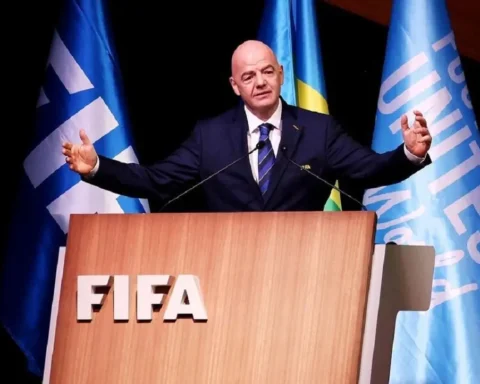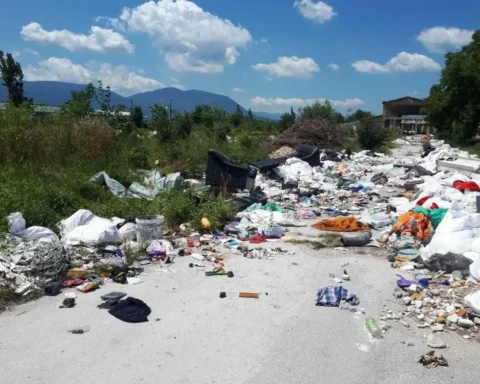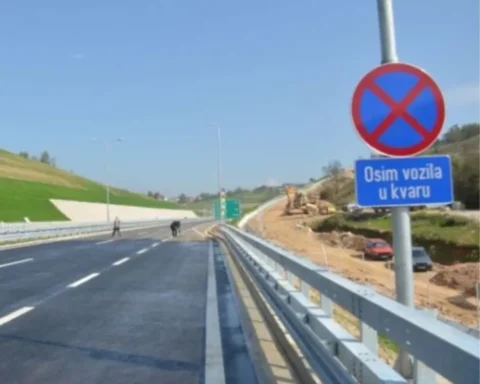That which the BiH political leaders had failed (or avoided) to do over the past 12 years ended in a matter of months: SDA and HDZ reached an agreement on elections in the city of Mostar. The political analyst Adnan Huskić believes that this agreement is the result of, above all, the pressure by the international community. Here he provides his views regarding statements by Dragan Čović, alternatives in Mostar, abuse of the voting procedures, and also answers the question whether the election would be decided by the voters or the counters.
ON THE DAYTON AGREEMENT: Very benevolent individuals often call for changes in the Dayton Agreement and the removal of a ‘straight-jacket’ imposed upon us by the international community; at that, they must understand that the solutions provided by this post-Dayton situation would be derived from the current political relations and could, in my opinion, prove to be worse than the existing ones.
INTERVIEW: There should be elections in Mostar after 12 long years. Will the residents of this city strike back at those who created this situation, by opting for alternatives on their ballots?
HUSKIĆ: During the initial reactions to this agreement, I noticed among the residents of Mostar that when asked this very question by the press, they simply responded that it was important to have elections at long last. They seem to be so exhausted by this situation, where they could say absolutely nothing, that to them any arrangement seems to be better than its total absence. Some voices were heard at the time that indicated the possibility of changing the ethnic matrix: “Give us at least an opportunity to say what we think about all this!“ However, due to the nature of relations in BiH and because I think that the Mostar situation cannot be copied across the country, I cannot ignore the fact that 25 after the war, each and every time the ethnic parties manage to capitalise on the standard narrative and conflict, with no major hindrances. Let’s say that a small part of the electorate is mobilised on this basis. Another is the consequence of the situation BiH is in: total capture of the state by political parties, the fact that many are directly and financially dependent on politics, through enormous public spending… budget beneficiaries are threatened directly, utterly un-democratic and repressive methods are used to force people to vote for ethnic options. A combination of these two things inhibits the rise and presence of alternatives. As much as I would personally like to see room for something like that, I can’t say that I see it, primarily because there is no clearly defined alternative recognised by the people of Mostar.
There are individual parties that certainly could play an important role, but I’m afraid that the fixed framework of issues, i.e. re-opening the question who would “Mostar belong to”, the importance of ethnic mobilisation based on “Bosniaks can’t allow Croats to take over Mostar”, the issue of “the capital” etc. are closing off the room for alternatives.
This is the way to impose a particular view of relations in BiH which is totally disastrous for the citizens, because the proclaimed goals of protecting the people disguise nothing other than straightforward crime and appropriation of all that is defined as public. Even if we accept that in the early 1990s some people were true nationalists, those we see now are simply criminals and appropriators of public resources.
With similar narratives and thanks to similar rhetoric, Dragan Čović did not need to have a campaign, because Željko Komšić did it for him. I think that taking these two elements into consideration, the room for alternatives is further narrowed.
However, it is important that the people of Mostar will have an opportunity to vote for the first time in so many years – that is, of course, should the elections be held this year at all.
INTERVIEW: You also referred to the uncertainty of country-wide elections. Whose interest is it not to hold elections?
HUSKIĆ: This kind of re-legitimation does not suit certain parties at this time. I would include DF, but SDA also has its own problems. However, it is not my impression that anyone is really trying to avoid elections. It is even in the interest of SNSD that elections are held as soon as possible. In light of the trends, to what extent SNSD has annulled its ‘opposition’ and brought their work and the work of RS institutions to utter pointlessness, particularly now with Mićo Mićić and the announced ‘takeover of Bijeljina’… all this indicted that SNSD is preparing for elections and that under such conditions, with such potent machinery and manpower, they certainly what to see the elections happen. Elections won’t be a problem for other parties either. I really do not see any orchestrated attempt to prevent elections from happening in order to maintain a particular situation. Moreover, we have to take the epidemiological situation into account, and the way it has impacted the elections in Serbia and Croatia, as well as Macedonia. We cannot disregard the fact that we do not know what summer and autumn will be like and whether elections will be possible or not in view of the pandemic, and ultimately, it is still unclear whether the House of Peoples will even adopt the budget. All these are issues worthy of further analysis, but unfortunately, we currently do not have the information that would allow us to assess whether elections will be held this year and if not, when.
Should the elections not be held, there will be a debate on whether the local elections should be held next year, or should we opt for synchronising the election cycles, i.e. to hold local and general elections together in 2022.
Should this happen, in my opinion, the crucial problem is in the fact that we would no longer have local election campaigns focused on local issues. They would disappear entirely, the same way they used to disappear in earlier local elections, when general issues that have nothing to do with local ones swallowed them entirely. Should they synchronise election cycles – you can forget about local issues.
INTERVIEW: In view of the numerous reports filed with the Central Election Commission (CEC) regarding irregularities during elections, will the elections be decided by the voters or the counters?
HUSKIĆ: Our elections are decided by the counters and that is quite clear, since the integrity of the election process has been undermined for quite some time. All this about elections made sense when we had a CEC that was not under such control by political parties. However, even if we disregard the CEC, there are still several things that indicate the existence of numerous problems regarding the integrity of the election process. We have electoral registers that have not been updated – in several ways. In addition to the deceased who appear in these registers, which is less important, we also have major errors in terms of the number of citizens who are actually in the country at the time of voting. We take data on all the individuals older than 18 and they enter the election register through the process of passive registration. One of the most important questions is how many of those individuals are actually in BiH at the time of voting.
There is an evident trend of emigration from BiH and most of those people keep their BiH citizenship as they move, i.e. they maintain their status as if still here, so that we have erroneous data to start with.
If you take such data into account, the voter turnout in BiH is much higher than presented. Much more than 50% actually vote. I am saying this because it is important to understand how the failure to update electoral registers creates massive potential for manipulation, along with the fact that we have been operating under the concept of the so-called ‘silent majority’ – the people who never express their opinions because they do not want to vote, for whatever reasons. For a long time, there was an opinion that this was the missing link for any changes in BiH, but according to data by the Centre for Election Studies, they make up no more than 30-35%. Another important issue, also directly related to the integrity of the election process, is the huge number of invalid ballots, around 10%, which undoubtedly indicates that there is something wrong with the process itself.
It is ether that the people do not know how to fill out their ballots, or they are using this to express their dissatisfaction, or it is an attempt to seriously abuse the election.
Anything more than 3% is absolutely unacceptable. Never mind the story that the OSCE observers confirm the regularity of elections, we cannot expect them to assess the elections properly. However, the data I have referred to indicate that there is serious abuse and that the process is not proper; it is thus clear why most of the citizens do not trust the election process.
INTERVIEW: Dragan Čović stated recently: “If it is the electoral will of the people of Mostar that there should be eight or nine residents of Mostar of Serb ethnicity in the City Council, so be it.” Do you have a comment on this statement?
HUSKIĆ: Does this mean “We do not intend to give the Serb people a privileged place in this situation, nor are we assuming their seats,” and we say “If they appear in the lists, and if the citizens elect them,” then they may be elected?
Whenever they prefer not to make a direct statement, political hypocrites always revert to the infamous ‘will of the people’.
I’m not sure what exactly is the intention here. I have never taken seriously the ‘pressures’ particularly those by Milorad Dodik, Čović’s natural partner, to improve the position of Serbs in Mostar. SNSD does not perceive Mostar as part of its territory and they are focused on the RS: Just like the Croat parties see Herzegovina and Mostar as solely their territory. And just like SDA, it must be added, focuses on parts of BiH ‘under the control of BiH Army’. Everything outside that is of lesser interest. That is why Stolac and Mostar remain problematic, because their ethnic affiliation remains unclear and they are a source of problem in relations between HDZ and SDA. I would like to see Mostar attempt to provide quality accommodation for the Serb minority in the City Council, as this would show yet again that this consocial arrangement they insist on can, in fact, be improved by granting privileged status to minorities which cannot achieve what Čović referred to, i.e. to be elected by the ‘will of the people’
INTERVIEW: Political parties managed to agree in a matter of months over issues they had previously failed or did not want to agree upon for years, i.e. a solution for Mostar. What happened that led to this change, was it pressure from the international community?
HUSKIĆ: Primarily pressure by the international community, because several things have happened, there was also the judgement of the European Court of Human Rights in the Irma Baralija case… When you say to the European partners in Brussels: ‘These are the rules the state should function under and this is the Constitution’ (and the European Convention is an integral part of the Constitution of BiH, Article 22, and it is in direct application, taking priority over all other law) when we violate the Convention, as we do in the cases of Sejdić-Finci, Baralija, Pilav… we violate the Constitution of BiH.
Legally, Article 2 (2) of the Constitution of BiH contains all the rights and freedoms guaranteed by the European Convention and its Protocols, all in direct application. On the other hand, Article 10 (2), which refers to the amendment procedure, states that no amendments or changes to the Constitution may eliminate or diminish the rights contained in Article 2 (2), the direction of further development of BiH should be clear. The EU told us quite clearly that changes to the Constitution of BiH must not distance us from the European Convention. We should insist on this, because this is a matter of the rule of low, which the EU, I hope, still holds to be an important issue for BiH. Insisting on the respect for laws and the Constitution (the European Convention) in relation to Brussels obviously facilitated the creation of synergy that led to the solution for the issue of Mostar. The solution is not satisfactory for me as a citizen of BiH, but at least there is one.
Very benevolent individuals often call for changes in the Dayton Agreement and the removal of a ‘straight-jacket’ imposed upon us by the international community; at that, they must understand that the solutions provided by this post-Dayton situation would be derived from the current political relations and could, in my opinion, prove to be worse than the existing ones.
Over time, I have become a staunch defender of Dayton and its consistent observance, because all kinds of alternatives to Dayton are actually worse. All that has been happening in the past 10-15 tears have been attempts to change the constitution. This is what our politics has turned into over the past 15 years. We speak only about how BiH should be organised, whether it should exist or not, etc. Those who believe that a future solution may be better than Dayton must realise that local, regional and global circumstances have changed significantly since 1995. The actors who may insist or promote the implementation and the strengthening of a civic concept are no longer there. Even those who are benevolent and who insist on it, often citing the ECHR, see things quite naively. I believe that today’s discourse is mainly in the language of realpolitik and the language of power. The EU could and should be a strong normative actor, but its influence and strength in BiH is decreasing, unfortunately.
In such circumstance, naivete can be quite dear, and naivete and belief in the norm and principles of international law has cost the people here very, very much.
This naivete during the war, the expectation that here would be a foreign military intervention, the naivete that continued after th3e war, through the expectation that someone else would solve all the problems, and particularly the current naivete, the belief that rules and international law still take primacy over power, can be quite pricy. We live in a world where power has taken the upper hand again. Those who do not understand this will pay dearly for their own mistakes.
Galić, Prlić i Weber za interview.ba: Izbori u Mostaru – nastavak dosadašnje trgovine životima i imovinom
O izborima u Mostaru Adnan Huskić: Živimo u svijetu u kojem je sila ponovo preuzela glavnu riječ. Kome to nije jasno, vrlo skupo će plaćati sopstvene greške.

